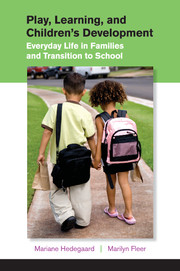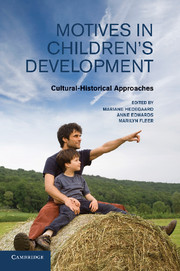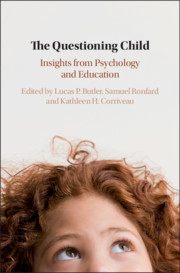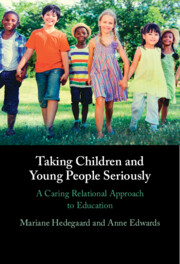Play, Learning, and Children's Development
This book explores the dynamics in children's everyday lives as they move between school and the family, with particular consideration of how children's motives change in response to new challenges. Professors Mariane Hedegaard and Marilyn Fleer follow four children, two from Australia and two from Denmark, over a twelve-month period. Using these case studies, they show how children's everyday activities, play, and the demands of both family and educational contexts influence their learning and development. The authors contribute to a sociocultural theory formulation that includes the child's perspective in cultural historical contexts. Their approach yields insights that transcend specific nationalities, cultures, and socioeconomic situations. The analysis shows not just how children's family life shapes their experiences in school, but how schools influence and shape their lives at home.
- Outlines new concepts in cultural-historical theory
- Comparative case studies enable transnational analysis
- Engages both educational and developmental psychology in school and domestic settings
Reviews & endorsements
"The authors' findings yield value that transcends specific nationalities and culture-imposed boundaries to pinpoint the power of children to play a dynamic role in the construction of family pedagogy and ultimately their own development … Recommended"
S. Durr, Choice
Product details
April 2013Hardback
9781107028647
240 pages
235 × 156 × 17 mm
0.45kg
13 b/w illus. 5 tables
Available
Table of Contents
- Foreword
- Part I. A Wholeness Approach to the Study of Children's Everyday Life:
- 1. Children's social situation and their activities in everyday settings
- 2. The conditions that family practices create for children's learning and development
- 3. Societal conditions shape family practices
- Part II. Family Activity Settings:
- 4. Morning routines in families
- 5. Walking to school
- 6. Afterschool settings and homework activities
- 7. Relaxing at home - unstructured times in families
- 8. The afterschool period - outdoor play at home
- 9. Evening meals
- 10. Bedtime routines
- Part III. Children Entering School Practices and Participating in Different Settings:
- 11. Entering into school practice
- 12. How schools create conditions for being a successful school child
- Part IV. Learning, Play, and Children's Development:
- 13. Children's everyday life in families and across into school.







